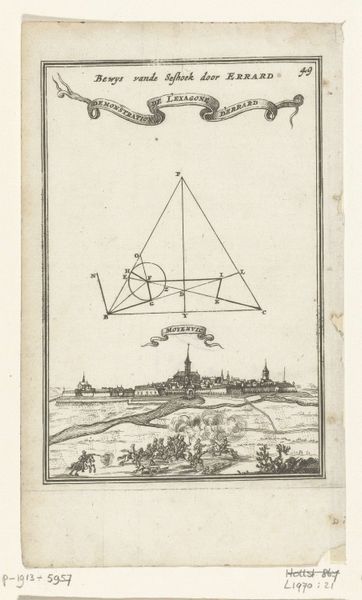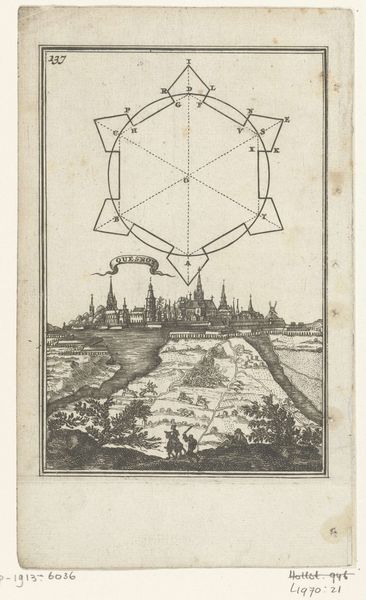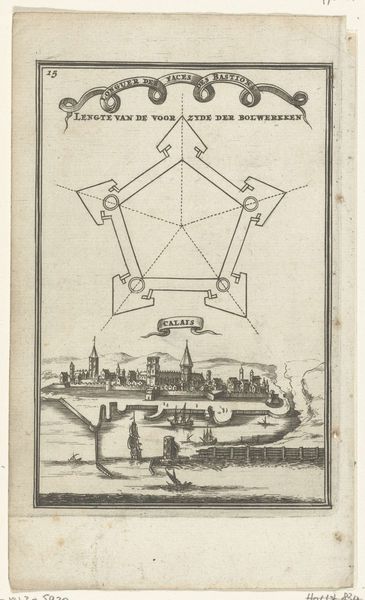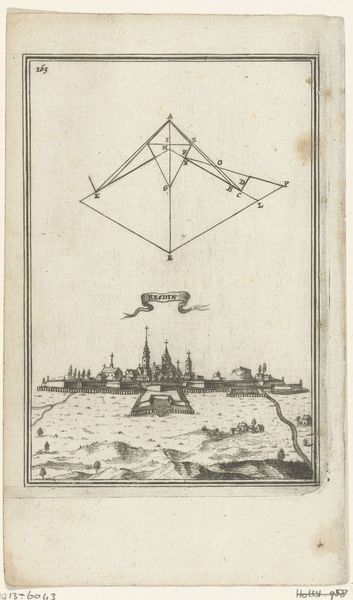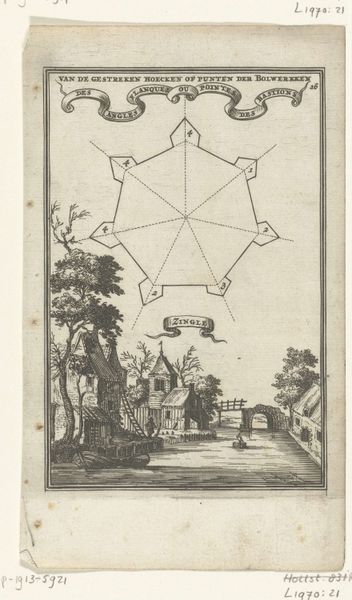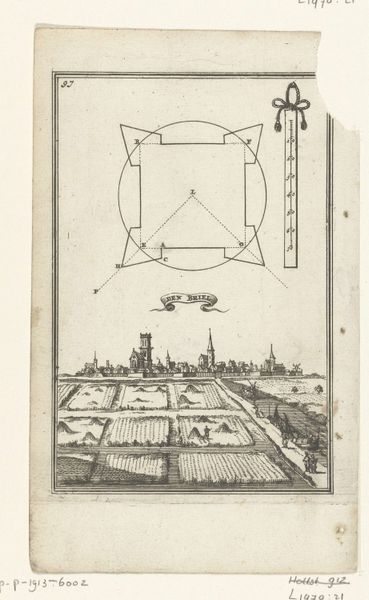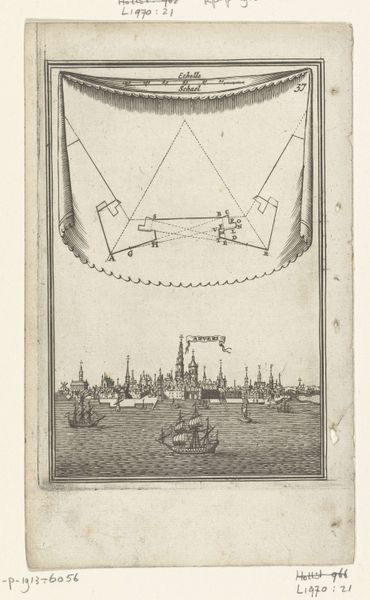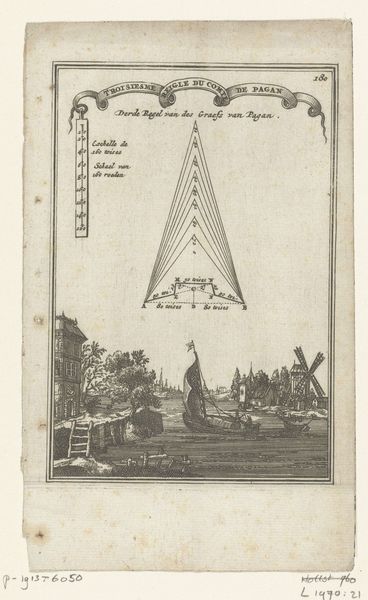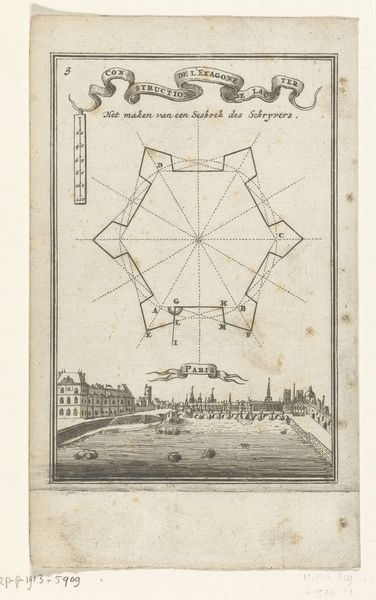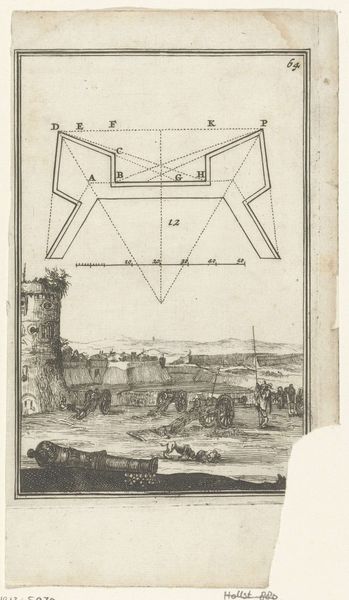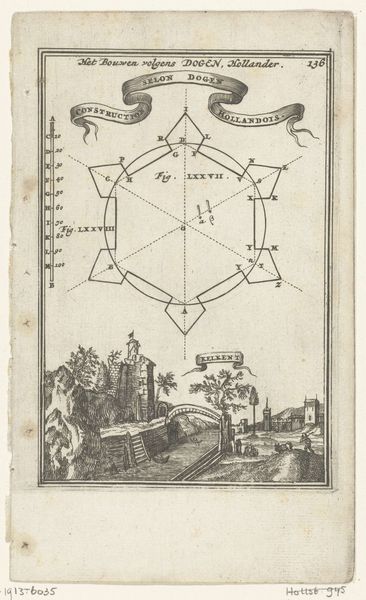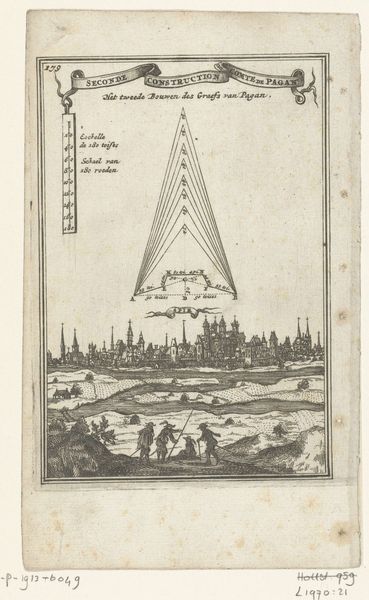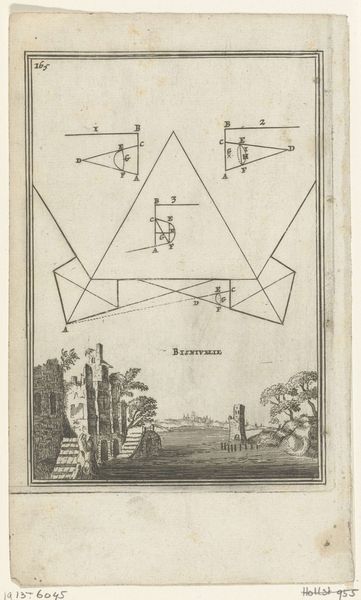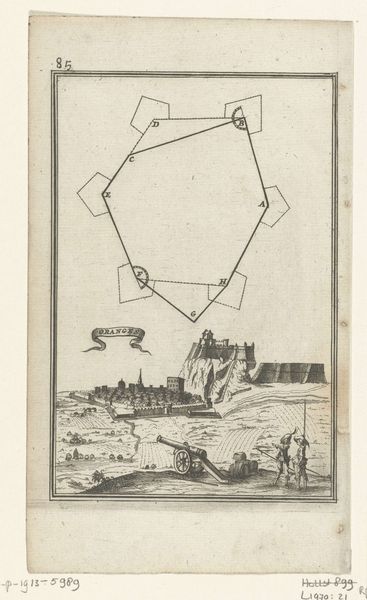
Illustratie voor 'Den Arbeid van Mars' van Allain Manesson Mallet 1672
0:00
0:00
romeyndehooghe
Rijksmuseum
print, engraving
#
baroque
# print
#
perspective
#
geometric
#
cityscape
#
engraving
Dimensions: height 185 mm, width 111 mm
Copyright: Rijks Museum: Open Domain
This is Romeyn de Hooghe’s illustration for Allain Manesson Mallet’s "The Work of Mars," an emblem of Amsterdam. The city's skyline unfurls beneath a geometric figure, a symbolic representation of strategy and order, hinting at Amsterdam's military prowess and planned urban layout. Consider the pyramid-like shape above the city. The pyramid appears in various contexts, from ancient Egypt to Renaissance emblems. It is a symbol of power, stability, and hidden knowledge. In this print, the pyramid surmounts Amsterdam, suggesting a city built on strategic foresight and enduring strength. This geometric figure connects to our collective memory of human ambition and the quest for order. But what is the emotional core of this image? It invites viewers to contemplate how societies impose structure and control, linking geometry to governance and urban design, revealing a potent psychological drive for control and order deeply embedded in the human psyche. The image suggests a constant cyclical progression, where old symbols resurface, adapt, and acquire new meanings in response to changing historical conditions.
Comments
No comments
Be the first to comment and join the conversation on the ultimate creative platform.
